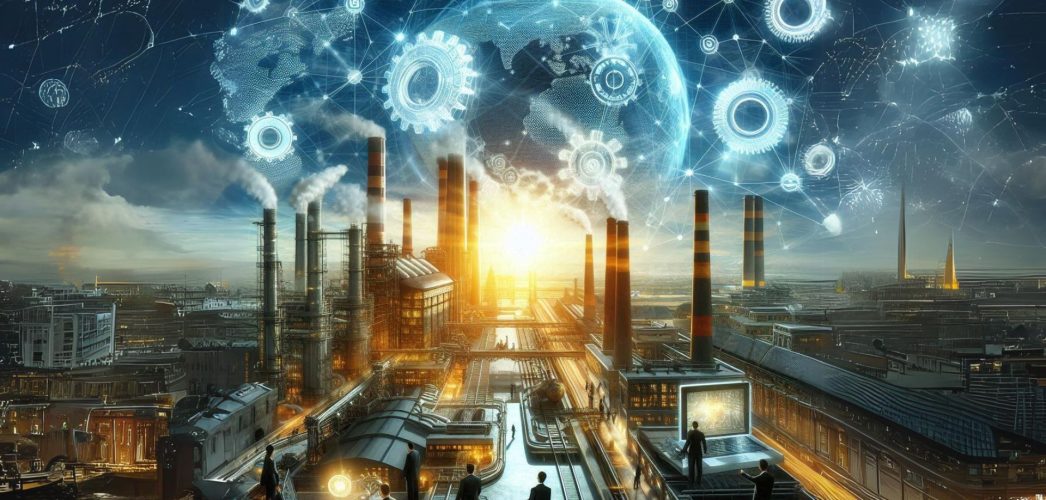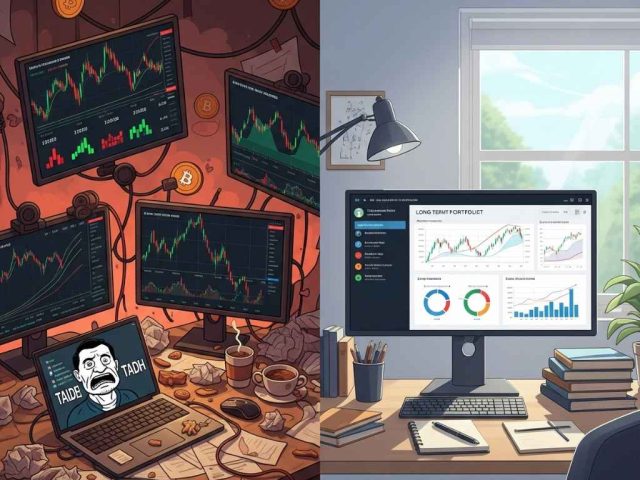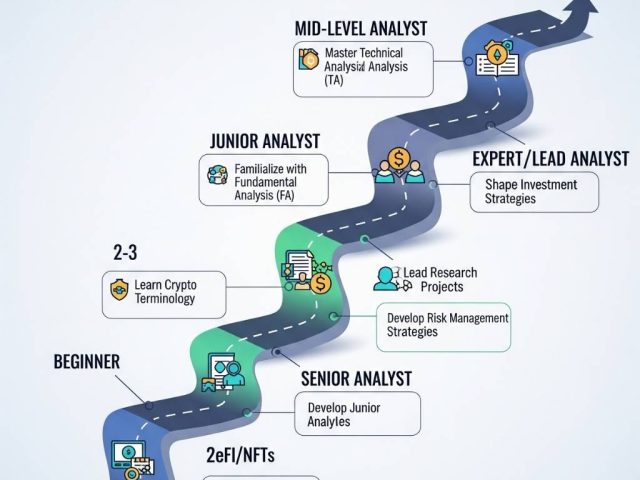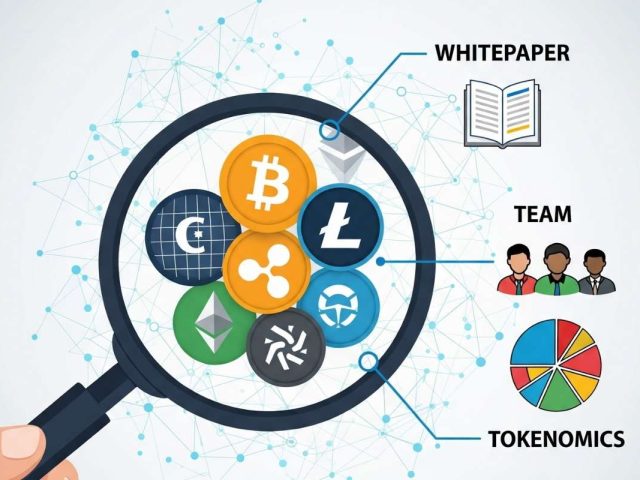Imagine a world transformed by innovation, where machines become smarter, factories operate autonomously, and financial transactions occur seamlessly across borders. This isn’t science fiction; it’s the reality of the Fourth Industrial Revolution (Industry 4.0), a period marked by the rapid convergence of technologies like artificial intelligence (AI), the Internet of Things (IoT), and, most importantly for this discussion, blockchain.
But to truly understand the potential of blockchain in Industry 4.0, we need to take a trip down memory lane and revisit the defining periods of human progress – the Industrial Revolutions.
A whirlwind tour through history: The Industrial Revolutions
Human history is a testament to our relentless pursuit of progress. The Industrial Revolutions stand as pivotal moments where innovation fundamentally reshaped societies and economies. Let’s embark on a brief exploration of these revolutions:
From steam to electricity: The First and Second Industrial Revolutions (18th – early 20th centuries)
The First Industrial Revolution, roughly spanning the 18th and early 19th centuries, witnessed the birth of mechanization. The invention of the steam engine ushered in an era of factory production, replacing manual labor with machine power. Industries like textiles, iron, and coal boomed, fundamentally altering the landscape of manufacturing.
Following on its heels, the Second Industrial Revolution (late 19th to early 20th centuries) saw the rise of electricity, assembly lines, and mass production. Technologies like the internal combustion engine and the telephone further accelerated the pace of innovation. This period also saw the emergence of new industries like chemicals, steel, and automobiles.
Famous Quote: “The process of innovation is not the work of the gifted few, but the result of a collective struggle.” – Peter Drucker (Management Consultant)
The rise of automation and the digital age: The Third Industrial Revolution (Mid 20th century – Present)
The baton of progress was passed yet again in the mid-20th century, ushering in the Third Industrial Revolution. This era witnessed the rise of automation and the digital revolution. Here are some key highlights:
- Electronics and Computers: The invention of transistors and integrated circuits paved the way for smaller, more powerful computers. These advancements fueled automation in factories and workplaces.
- The Information Age: The rise of the internet and digital communication networks transformed how we access and share information. This era saw the birth of personal computers, the internet, and mobile phones.
- Rise of Automation: Robotics and automation became increasingly sophisticated, taking over repetitive tasks in manufacturing and other industries.
The Third Industrial Revolution continues to this day, with constant advancements in artificial intelligence, big data, and the Internet of Things (IoT) blurring the lines between the physical and digital worlds. However, a new wave of innovation is on the horizon, promising to reshape everything we know about work, economics, and society – the Fourth Industrial Revolution.
The Fourth Industrial Revolution: A fusion of technologies
The Fourth Industrial Revolution (Industry 4.0) marks a significant leap forward, characterized by the convergence of several groundbreaking technologies. Let’s delve into some of the key players shaping this era:
The Internet of Things (IoT) and the rise of smart machines
Imagine a world where everyday objects are interconnected, collecting and exchanging data. This is the essence of the Internet of Things (IoT). Sensors embedded in devices like machinery, vehicles, and even household appliances allow them to communicate with each other and transmit data to a central network. This creates a smart ecosystem where machines can autonomously monitor and optimize processes, leading to:
- Increased Efficiency: Production lines can self-diagnose problems and adjust settings for optimal output.
- Predictive Maintenance: Equipment can predict potential failures and schedule maintenance before disruptions occur.
- Enhanced Data Collection: Real-time data from connected devices provides valuable insights for businesses.
The rise of IoT signifies a fundamental shift towards intelligent machines that can not only perform tasks but also learn and adapt.
Artificial Intelligence (AI) and the dawn of automation 2.0
The story of Industry 4.0 doesn’t stop at connected devices. Artificial intelligence (AI) plays a crucial role in this revolution, ushering in a new era of automation. Here’s how:
- Machine Learning: AI algorithms can analyze vast amounts of data from IoT devices and other sources to identify patterns and make predictions. This allows machines to learn and improve their performance over time.
- Cognitive Automation: AI goes beyond simple automation tasks by mimicking human cognitive abilities. AI systems can analyze complex situations, make decisions, and even solve problems creatively. This opens doors for automation in areas previously dominated by human expertise.
- Robots with a Brain: Advancements in AI are leading to the development of intelligent robots that can collaborate with humans in workplaces. These robots can handle complex tasks, adapt to changing environments, and even learn from their experiences.
The integration of AI with automation signifies a paradigm shift. We’re moving beyond repetitive tasks to a future where machines can handle complex decision-making processes, fundamentally altering the nature of work in the 4th Industrial Revolution.
Big Data and the power of information
The fuel powering the engine of Industry 4.0 is not just sophisticated machines, but also the vast amount of data they generate. This era is characterized by the rise of Big Data, which refers to massive datasets collected from various sources, including:
- IoT devices: Sensors in connected machines constantly generate data on performance, usage, and environmental conditions.
- Social media: Billions of users create a constant stream of data through their interactions and online activities.
- Financial transactions: Every digital payment and financial interaction generates data points.
This sea of data, once analyzed using powerful computing tools, holds immense potential. Here’s how Big Data plays a crucial role in Industry 4.0:
- Data-driven decision making: Businesses can leverage insights from Big Data to make informed decisions about production, marketing, and resource allocation.
- Predictive analytics: By analyzing historical data and current trends, companies can predict future outcomes and proactively address potential issues.
- Hyper-personalization: Big Data allows businesses to tailor their products and services to individual customer preferences, creating a more personalized experience.
Big Data empowers businesses to operate with greater efficiency, anticipate customer needs, and make data-driven decisions that fuel innovation in the 4th Industrial Revolution.
Blockchain: The Trust Machine of the 4th Industrial Revolution
We’ve explored the technological forces shaping Industry 4.0 – the interconnectedness of devices (IoT), the rise of intelligent machines (AI), and the power of data (Big Data). But amidst this technological symphony, a new player emerges, promising to revolutionize trust and transparency in this decentralized world: Blockchain.
Blockchain: The Trust Machine of the 4th Industrial Revolution
We’ve explored the technological forces shaping Industry 4.0 – the interconnectedness of devices (IoT), the rise of intelligent machines (AI), and the power of data (Big Data). But amidst this technological symphony, a new player emerges, promising to revolutionize trust and transparency in this decentralized world: Blockchain.
What is Blockchain? Demystifying the distributed ledger technology
Imagine a shared record book, not controlled by a single entity, but accessible and verifiable by everyone involved. That’s the essence of blockchain. It’s a distributed ledger technology (DLT) that allows for secure, transparent, and tamper-proof recording of transactions. Here’s how it works:
- Blocks and Chains: Data is grouped into blocks, containing information about the transaction (e.g., amount, sender, receiver). These blocks are then chained together chronologically, forming an immutable record.
- Cryptography: Each block is cryptographically linked to the previous and subsequent blocks. Any attempt to tamper with a block would alter the entire chain, making it easily detectable.
- Decentralization: Unlike traditional databases controlled by a central authority, blockchain operates on a peer-to-peer network. Copies of the ledger are distributed across all participants, ensuring transparency and security.
Famous Quote: “Blockchain isn’t just a technology. It represents a shift in paradigms.” – Don Tapscott (Author, Blockchain Revolution)
This unique combination of features makes blockchain a game-changer for Industry 4.0. Let’s delve into how it’s revolutionizing various industries:
How Blockchain is revolutionizing industries in the 4th Era
The disruptive potential of blockchain extends across a vast array of industries in the 4th Industrial Revolution. Here are some key areas where blockchain is transforming how we operate:
Supply Chain Management: From opaque to transparent
Traditionally, supply chains have been plagued by inefficiencies and a lack of transparency. Information about product origin, transportation details, and even potential counterfeiting can be obscured within a complex network of intermediaries. Blockchain offers a solution:
- Traceability and Transparency: By recording every step of a product’s journey on a blockchain ledger, all participants can access real-time data on origin, location, and condition. This fosters trust and accountability within the supply chain.
- Reduced Fraud: The tamper-proof nature of blockchain makes it difficult to introduce counterfeit products or manipulate data. This enhances consumer confidence and brand reputation.
- Increased Efficiency: Blockchain can streamline communication and automate processes within the supply chain, leading to faster delivery times and reduced costs.
For instance, companies like Walmart are utilizing blockchain to track the origin of food products, ensuring their safety and quality for consumers.
Secure and Efficient Data Sharing in a Decentralized World
The vast amount of data generated in Industry 4.0 raises concerns about data security and privacy. Centralized databases become vulnerable to hacking and data breaches. Blockchain offers a secure alternative:
- Decentralized Data Storage: Information can be stored securely on a distributed ledger, eliminating the risk of a single point of failure.
- Enhanced Data Security: Blockchain’s cryptographic security protocols make it extremely difficult for unauthorized access to data.
- Empowering Users: Users can control access to their data and choose who can view it. This fosters greater transparency and user control in the data economy.
For example, healthcare providers can utilize blockchain to securely share patient medical records while maintaining patient privacy.
Empowering Individuals with Decentralized Finance (DeFi)
The rise of DeFi represents a paradigm shift in the financial sector. Blockchain empowers individuals with greater control over their finances by enabling:
- Peer-to-Peer Transactions: Individuals can conduct financial transactions directly with each other without relying on traditional intermediaries like banks.
- Enhanced Accessibility: DeFi allows individuals from unbanked or underbanked regions to access financial services and participate in the global financial system.
- Transparent and Efficient Markets: Blockchain-based financial applications operate on open and transparent protocols, reducing the risk of manipulation and fraud.
For instance, DeFi platforms like Uniswap allow users to trade cryptocurrencies directly with each other, bypassing centralized exchanges.
These are just a few examples of how blockchain is transforming industries in the 4th Industrial Revolution. As the technology continues to evolve, we can expect even more innovative applications that redefine trust, security, and efficiency across various sectors.
The Human Side of the 4th Industrial Revolution: Challenges and Opportunities
The 4th Industrial Revolution, fueled by technological advancements like blockchain, promises a future of unprecedented innovation and progress. However, it’s crucial to acknowledge the human aspect of this transformation. Here are some key challenges and opportunities to consider:
The future of work in the age of automation
Advancements in AI and automation threaten to displace jobs across various industries. While new opportunities will undoubtedly emerge, there’s a concern about potential job losses and the need for workforce reskilling.
Fostering trust and collaboration in a decentralized world
The decentralized nature of blockchain and other Industry 4.0 technologies can lead to challenges in establishing trust and collaboration. New governance models and frameworks will be essential to ensure responsible development and implementation.
Here are some questions to ponder:
- How can we ensure a smooth transition for workers whose jobs may be impacted by automation?
- What educational and training programs are needed to prepare the workforce for the demands of the 4th Industrial Revolution?
- How can we establish ethical guidelines and regulations for the development and use of these powerful technologies?
Despite these challenges, the 4th Industrial Revolution also presents exciting opportunities:
- Increased Efficiency and Productivity: Blockchain and other technologies can automate tasks, streamline processes, and boost overall efficiency across industries.
- Enhanced Innovation: The convergence of technologies fosters a fertile ground for innovation, leading to the development of new products, services, and business models.
- Greater Transparency and Accountability: Decentralized technologies like blockchain promote transparency and accountability within organizations and supply chains.
By embracing the potential of these technologies while addressing the human aspects, we can navigate the 4th Industrial Revolution and build a future that benefits all.
Conclusion: Embracing the 4th Industrial Revolution with Blockchain
The 4th Industrial Revolution is upon us, driven by a confluence of groundbreaking technologies like AI, IoT, Big Data, and most importantly, blockchain. This era promises a future of interconnected machines, intelligent automation, and data-driven decision making. However, it’s not just about technological advancements; it’s about the human impact and ensuring a smooth transition into this new paradigm.
Blockchain, with its emphasis on security, transparency, and trust, emerges as a critical enabler for Industry 4.0. From revolutionizing supply chains to empowering individuals with DeFi, its applications hold immense potential across various sectors. As we embrace these technologies, we must remain mindful of the challenges, particularly the impact on the workforce and the need for ethical frameworks.
The 4th Industrial Revolution presents a unique opportunity to build a more efficient, transparent, and innovative future. By harnessing the power of blockchain and other technologies while addressing the human aspect, we can create a world that benefits everyone.
Ready to explore the transformative potential of blockchain for your business?
This is where Scentia Research Group comes in. We are a team of passionate experts dedicated to helping businesses navigate the complexities of blockchain technology.
FAQs
What are some of the potential risks associated with Blockchain technology?
While blockchain offers exciting possibilities, it’s not without its challenges. Here are some potential risks to consider:
- Scalability: Current blockchain platforms can struggle to handle large volumes of transactions, potentially hindering widespread adoption.
- Security vulnerabilities: Although blockchain is secure by design, new vulnerabilities can emerge, and hacking attempts remain a possibility.
- Regulation: The regulatory landscape surrounding blockchain is still evolving, which can create uncertainty for businesses.
- Energy consumption: Proof-of-work, a common consensus mechanism in blockchain, can be energy-intensive, raising environmental concerns.
How can businesses prepare for the 4th Industrial Revolution?
Here are some steps businesses can take to prepare for the 4th Industrial Revolution:
- Embrace innovation: Stay informed about emerging technologies like blockchain, AI, and IoT, and explore their potential applications within your industry.
- Invest in talent: Develop or acquire skills in data science, cybersecurity, and blockchain development to navigate the new technological landscape.
- Adapt your business model: Explore how blockchain can revolutionize your supply chain, data management, or customer interactions, and adapt your business model accordingly.
- Upskill your workforce: Invest in training programs to equip your employees with the skills needed to thrive in the 4th Industrial Revolution.
What are some real-world examples of Blockchain applications?
Blockchain is already making waves across various industries. Here are a few real-world examples:
- Supply Chain Management: Companies like Walmart and Unilever use blockchain to track the origin and movement of goods, ensuring transparency and efficiency.
- Financial Services: Decentralized finance (DeFi) applications use blockchain to enable peer-to-peer financial transactions, bypassing traditional intermediaries.
- Healthcare: Blockchain is being explored for secure storage and sharing of medical records, improving patient privacy and data security.
- Voting Systems: Blockchain-based voting systems are being piloted to enhance the security and transparency of elections.
What is the role of Scentia in the future of Blockchain development?
At Scentia Research Group, we believe blockchain has the potential to revolutionize how businesses operate. We offer a range of services to help businesses navigate the complexities of blockchain technology, including:
- Blockchain strategy and consulting: We help businesses identify potential applications of blockchain and develop a comprehensive strategy for implementation.
- Feasibility studies and proof-of-concept development: We assess the viability of blockchain solutions and develop prototypes to demonstrate their value proposition.
- Technology audits and security assessments: We ensure the security and compliance of blockchain implementations within your organization.
- In-depth research reports: We provide comprehensive reports on specific blockchain applications and their potential impact on your industry.
How can I learn more about Blockchain technology?
There are numerous resources available to learn more about blockchain technology. Here are a few suggestions:
- Online courses and tutorials: Platforms like Coursera, edX, and Udemy offer a variety of online courses on blockchain technology.
- Industry publications and reports: Stay informed by reading publications from reputable sources like CoinDesk and the World Economic Forum.
- Attend blockchain conferences and events: Network with industry experts and learn about the latest developments by attending blockchain conferences and workshops.
By leveraging these resources and partnering with Scentia Research Group, you can gain a deeper understanding of blockchain and unlock its transformative potential for your business.
Scentia Research Group: Your Trusted Partner in the Blockchain Revolution
The 4th Industrial Revolution presents a dynamic and ever-evolving landscape. At Scentia Research Group, we understand the complexities of navigating this new frontier. Our team of experts combines deep technical knowledge with a keen understanding of business needs. We are passionate about empowering businesses to harness the transformative power of blockchain technology.
Here’s what sets Scentia Research Group apart:
- Unparalleled Expertise: Our team comprises seasoned professionals with extensive experience in blockchain technology, cryptography, and distributed ledger systems.
- Data-Driven Approach: We leverage in-depth research and analysis to provide you with actionable insights and a clear roadmap for blockchain implementation.
- Tailored Solutions: We don’t offer a one-size-fits-all approach. We take the time to understand your unique business challenges and develop custom-tailored blockchain solutions.
- Future-Proof Strategies: We stay ahead of the curve, constantly researching emerging trends and developments in blockchain technology to ensure our solutions are future-proof.
- Commitment to Client Success: Your success is our priority. We partner with you every step of the way, from initial consultation to successful implementation and ongoing support.
Ready to unlock the potential of blockchain for your business?
We invite you to download our latest in-depth research report on “(Insert topic relevant to the blog post here, e.g., Supply Chain Management and Blockchain)”. This comprehensive report delves into the specific applications of blockchain within your industry, explores real-world case studies, and outlines the potential benefits and challenges associated with implementation.
Download your free copy today and start your journey towards a more efficient, secure, and transparent future with blockchain!
Contact Scentia Research Group today to schedule a consultation and discuss how we can help you leverage the power of blockchain technology.





